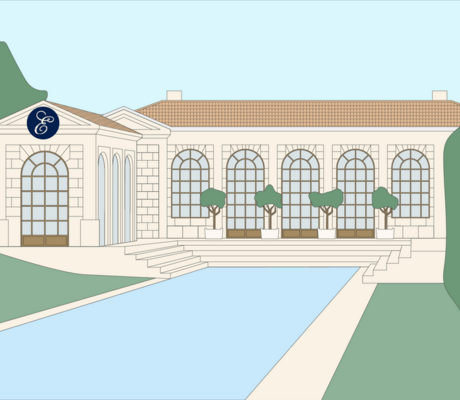Whether you’re looking to purchase the perfect French estate or a sun-drenched Caribbean villa, the market for high-value properties remains buoyant.
With no shortage of buyers looking for homes that offer space and seclusion, high-end property continues to be an alluring investment, either as an income stream through rental or for personal use. As a result, many investors are actively looking to add additional homes to their property portfolio.
So why consider a mortgage, particularly if you have the cash available to buy the property outright?
Retain liquidity
Whether the property you want to purchase costs $2 million or $20 million, there’s always an opportunity cost when you buy a home in cash.
High-value properties in the world’s most sought-after locations generally offer solid ROI and don’t depreciate in value. Equally, when you are using a portion of your liquid assets or net worth to buy that property in cash, you then have less liquidity to make other investments.
Especially in the context of the events of the past year, retaining liquidity in order to be able to pursue additional investment opportunities has paid off lucratively for many investors. From an investment perspective, therefore, it can be beneficial to borrow money to purchase a property at a very low interest rate rather than purchasing a property in cash at the cost of alternative opportunities. Mortgages can be particularly advantageous in cases where your property doesn’t necessarily produce an income.
Benefit from low interest rates, tax advantages and no remit fees
Practically, a mortgage can make sense for any international property purchase, even if you have cash available to purchase the property outright.
Current interest rates are very attractive, especially in Europe, where a 20-year fixed mortgage can be as low as 1.2% in France, for example. As well as retaining liquidity, mortgage holders may also be able to benefit from an array of tax advantages, which may be interesting to consider.
Buying in cash can affect your fiscal situation, and you can incur additional taxes as a result. On the other hand, many countries offer tax breaks and other advantages for property owners with a mortgage. For example, France and Spain have a wealth tax which is levied against the value of your assets in that country – if you have a mortgage on the property, the tax is only levied against your equity. Other countries have similar regimes that you should also explore. Read more about Spanish mortgages for non-residents.
As an international buyer, a mortgage can also save you the cost and complication of sending significant cash to the country where you are buying, a process that can often incur significant fees.
You can release equity from your current property holdings
Borrowing to buy your newest property doesn’t necessarily mean you need to take a mortgage on that asset. You may find it easier to arrange a mortgage against a property you currently own in the country you reside in. Lenders always look more favourably towards residents because background checks are easy. It’s also straightforward for lenders to value the asset and understand your income streams. From there, it’s often a straight line to a refinancing approval.
Depending on where you live, you may be able to benefit from competitive low interest rates in your home country. If rates are low, taking advantage of these should be considered, especially if they are cheaper than in the country you’re buying in. Releasing equity from a property in your home country can be very straightforward, and refinancing can be quick to arrange. The UK and the US, for instance, both have great equity release and remortgage solutions that are worth considering.
For other buyers, this route may not be possible. It can be challenging to remortgage properties that are already owned in some countries. Spanish mortgage rules prevent you from refinancing an owned property, for example, so this won’t be an option for buyers looking to refinance Spanish properties. Likewise, very few lenders in Greece will offer this facility.
It’s easy to secure a loan against securities or other liquid financial assets
An alternative to what people tend to think of as a ‘traditional’ mortgage is to secure a loan against your investments. For example, it’s possible to secure a loan secured against an investment portfolio or a single stock holding. The loan proceeds can be used to purchase your new dream property.
These types of loan are generally approved quickly and efficiently. The interest rate can be as low as 1% per annum with low set up fees. These are often non-status and non-recourse loans.
Some international private banks are also open to arranging a ‘mixed mortgage.’ In essence, this is a mortgage that is secured against your new property or an existing portfolio as well as your assets. These can be particularly advantageous as you can benefit from a complete solution to tax efficiency in harmony with your personal investment strategy.
With the right partner, high-value mortgages are straightforward
Many people think that mortgages are complex and cumbersome. There’s also an assumption that the higher the mortgage value or property costs, the more complex and time-consuming applying for and obtaining lending becomes.
The reality is that by working with the right high value mortgage broker who has the right connections, securing a mortgage or lending is straightforward, regardless of the complexity of your personal situation or the cost of your dream property.
Here at Enness, we help international buyers find the best possible solution to their mortgage and finance needs. We cover all key HNW territories and facilitate lending worldwide to get you the best deal through our unparalleled network of lenders and contacts.





